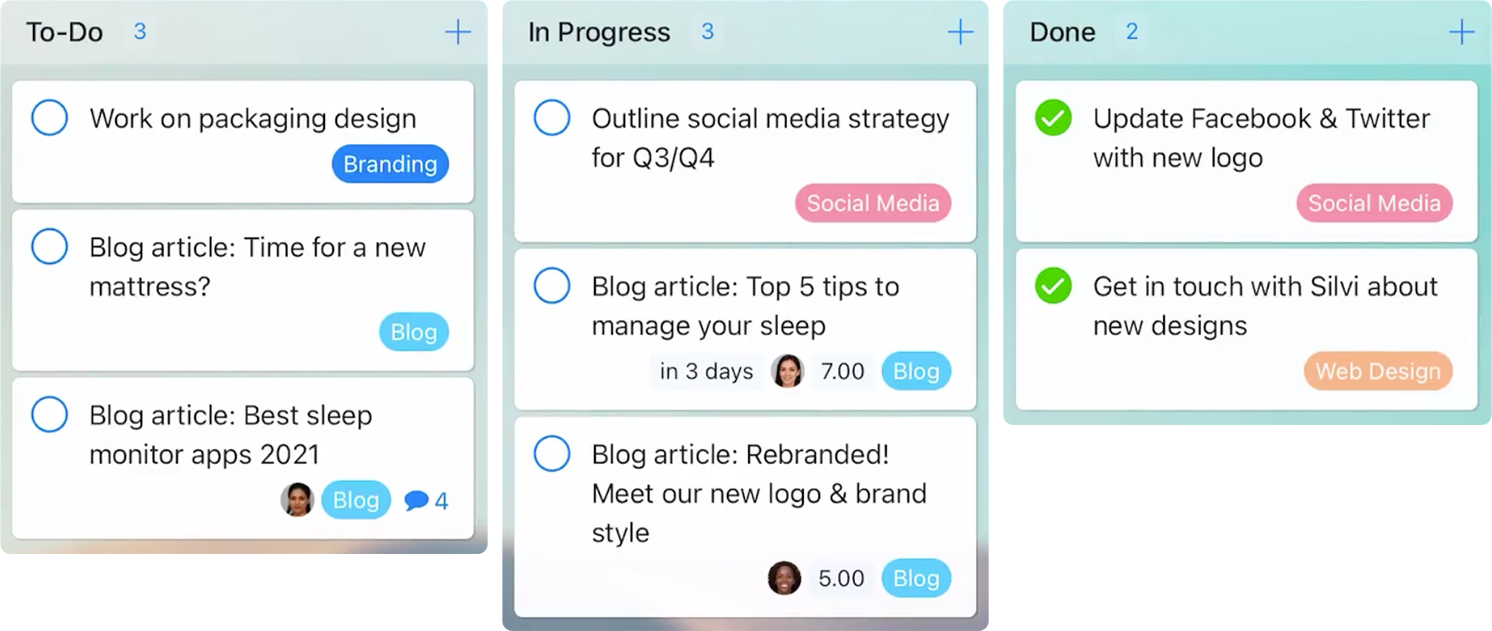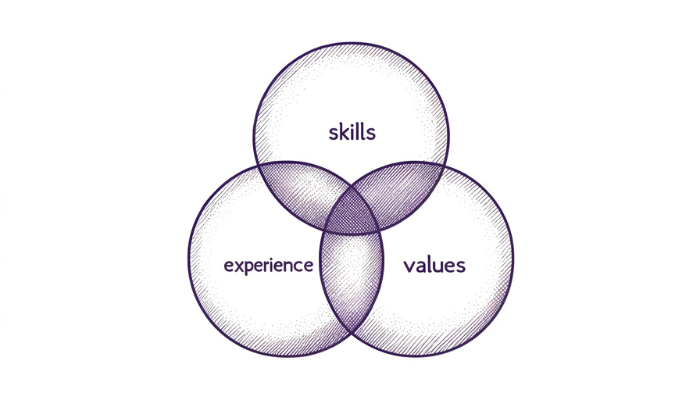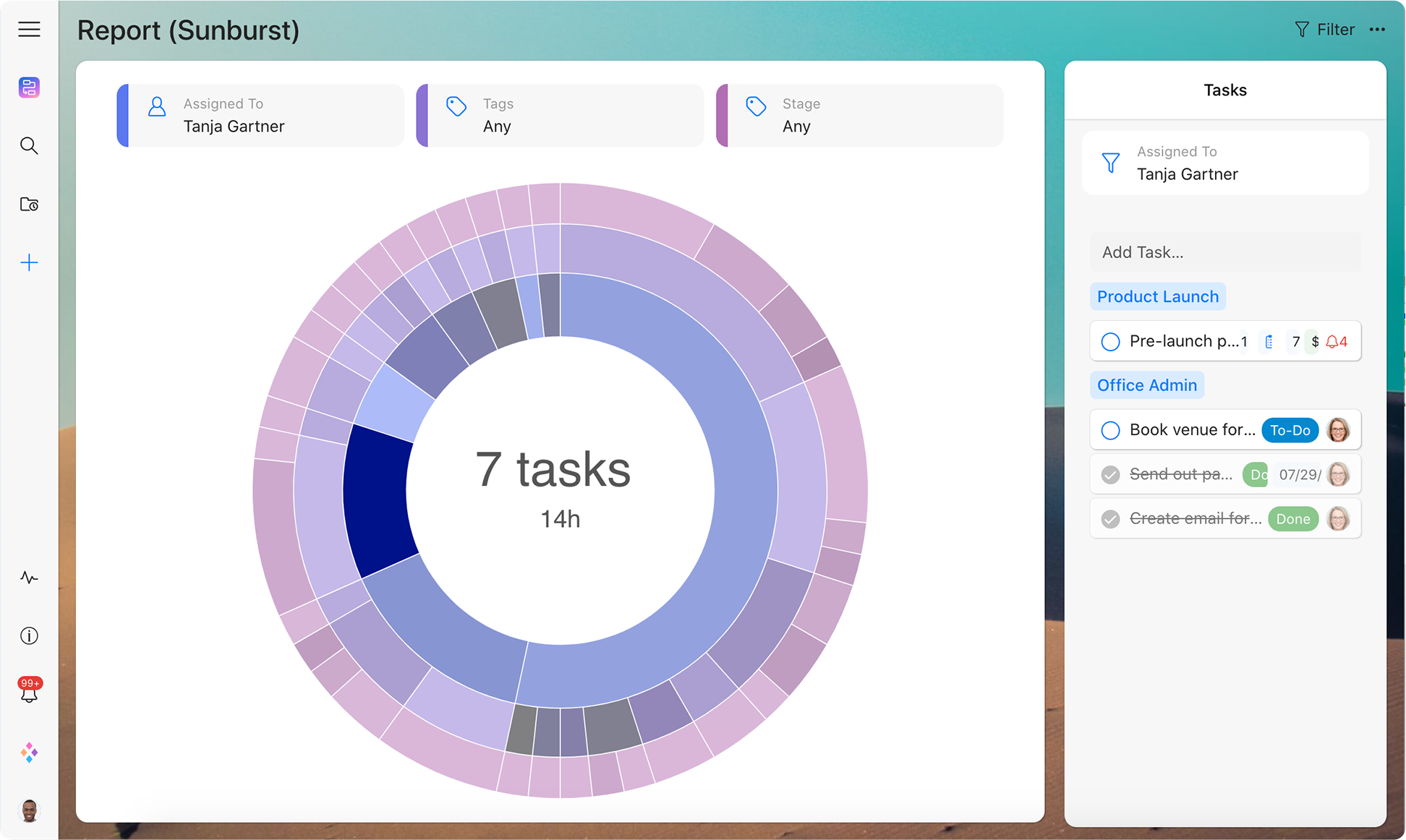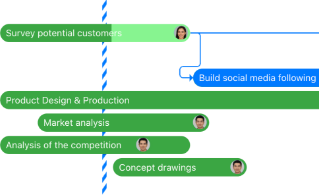How to Manage a Team: 10 Tips for Success
Spoiler alert: there’s more to it than appointing tasks!

Successful team management is like a coach leading a sports team to victory. The coach must understand each player’s strengths and weaknesses, develop strategies that play to the team’s advantages, and make adjustments as the game progresses.
Similarly, a successful team manager knows their team members’ individual skills and how these can be combined to achieve the team’s objectives.
For instance, consider a project team composed of a creative thinker, a detail-oriented planner, and a tech-savvy innovator. The manager’s task is to align these varied skills towards a common goal – like launching a new product. This involves assigning roles that leverage each member’s strengths, such as the creative thinker generating ideas, the planner organizing the project timeline, and the innovator developing the technical solutions.
This practical approach to team management ensures that, like a well-coached sports team executing a winning play, each member contributes effectively to the team’s success.
By understanding and applying these principles, the insights and strategies outlined in this article will guide you on how to harness the full potential of your team, leading to successful outcomes and a rewarding experience for all involved.
This article will give you:
✅ a heads-up on the importance of managing teams properly
✅ the keys to successful team managment
✅ proven and creative ways to manage a team efficiently
What Does it Mean to Manage a Team Successfully?
A great approach to achieving business outcomes, working in a team environment has many benefits. Not only is the effect of a combined effort greater than individual performances, but teamwork exposes you to different perspectives, and encourages communication and collaboration.
The measure of success is different to every team. From the coach leadings its team to success to the creative department in a small agency, each team has their own purpose, goals, and objectives. They also have their own set of individuals who make up the team. Just think of the plethora of personalities, skill sets, and experiences; it is highly unlikely that two teams are the same.
As a manager, your job is to steer your team towards achieving the end goal. This not only means coordinating the process that will meet your objectives within its required criteria and timeframe, but it also means having to consider and accommodate the individuals involved. Achieve this kind of harmony, and you are well on your way to a fruitful result.
So, how can you achieve this? Well, first things first, you need management skills.
Key Management Skills
Being tasked with the responsibility of guiding a team towards their target requires particular skills, especially if you’re going to be good at it. Traditionally, a manager’s job is to deal with the administration of the business, things like setting the strategy, organizing resources, and coordinating employees. But nowadays, it takes more than just being a tip-top organizer to manage a team successfully.
You may often hear the terms ‘leader’ and ‘manager’ used inclusively, but there is actually a difference. By definition, a leader is someone who creates the vision, innovates, and focuses on the long-term overview, and a manager is a person who gathers the necessary tools and resources to set, measure and accomplish the vision. The leader is the one with the people skills, whereas the manager focuses on systems and structures. But away with that — we all know that for a manager to stand out, having leadership qualities is a must. (And it wouldn’t hurt a leader to know how to facilitate things!)
Being able to communicate, and develop a relationship with the members of your team is critical for building trust, promoting collaboration, and enhancing teamwork. Interaction that isn’t subjected to following orders lays the foundation of a team who enjoys working together. And a team who enjoys working together is more likely to succeed together.

Simplify your project communication and task management with our user-friendly project management software.
Sign up for free today!
Tips on How to Manage a Team Successfully
The following practical tips act as guiding stars for any manager looking to inspire, motivate, and lead their team to success. These foundational strategies are designed to help you harness the collective strength of your team, turning individual talents into a unified force for achieving shared goals.
1) Assembling the Right Team for Success
Assembling the right team means more than just grouping individuals together. It requires a strategic approach to select members whose skills, experiences, and personalities complement each other. Avoid skill gaps by:
- Conducting thorough interviews to understand candidates’ abilities and how they fit into the team puzzle.
- Prioritizing diversity to foster innovation and problem-solving.
- Assessing both technical skills and soft skills, like communication and teamwork.
Further Steps
Consider cultural fit alongside skills and experience: Ensure new hires share your team’s core values and work ethic. Utilize role-playing or situational questions during interviews to assess compatibility with your team’s culture and work style. Building a team with a strong cultural fit can significantly enhance teamwork and productivity.

2) Trusting Your Team to Excel
Trusting your team involves delegating tasks effectively and resisting the urge to micromanage. Build trust by:
- Clearly defining expectations and providing the necessary resources.
- Being available for guidance while empowering team members to make decisions.
- Adjusting your level of oversight based on individual performance and confidence.
Further Steps
Implement a feedback loop: Encourage team members to share their thoughts on the delegation process and the support they receive. This can help you refine your approach to trust and delegation, making it more effective over time. Regularly revisiting and discussing the delegation process can lead to continuous improvement and greater autonomy for your team members.

3) Adapting Management Styles to Team Diversity
Effective management acknowledges team diversity, requiring you to adapt your approach to meet various needs. Ensure effective leadership by:
- Learning about your team members’ preferences for feedback and communication.
- Maintaining consistency in how you reward and discipline, ensuring fair treatment.
- Employing different motivational strategies to cater to individual needs.
Further Steps
Invest in personality and strength assessments: Tools like Myers-Briggs Type Indicator (MBTI), StrengthsFinder or 16 Personalities can offer insights into your team members’ preferences and strengths, allowing you to tailor your management style more effectively. Understanding these aspects can help in assigning tasks that align with each member’s strengths, thus improving satisfaction and efficiency.

4) Recognizing and Celebrating Achievements
Recognizing achievements plays a crucial role in motivating your team. Show appreciation by:
- Giving public shoutouts for outstanding work during team meetings.
- Offering tangible rewards like bonuses, certificates, or small gifts for significant achievements.
- Encouraging peer recognition to foster a supportive team culture.
Further Steps
Set up a recognition program: Develop a structured program to regularly recognize team members’ efforts and achievements. This could range from ‘Employee of the Month’ awards to annual performance bonuses. Recognition programs can significantly boost morale and encourage a culture of excellence and appreciation.

5) Uniting the Team with Common Goals
Unified team goals are essential for promoting collaboration. Enhance team unity by:
- Setting clear, achievable objectives that require collective effort.
- Regularly discussing progress towards the common goal and adjusting strategies as needed.
- Celebrating milestones together (with the help of Gantt Charts) to reinforce the sense of teamwork.
Further Steps
Involve the team in goal-setting: Engage your team in the process of setting goals to ensure they are meaningful and motivating for everyone. This collaborative approach can increase commitment and accountability, as team members feel a sense of ownership over the goals they helped create.

6) Building Strong Team Relationships
Strong relationships are the foundation of a cohesive team. Strengthen team bonds by:
- Organizing regular team-building activities outside of work.
- Encouraging informal social interactions among team members.
- Showing genuine interest in team members’ personal lives and well-being.
Further Steps
Leverage technology for remote teams: For teams that are not co-located, use video conferencing tools and virtual team-building activities to foster connections. Virtual coffee breaks or online games can help bridge the distance, making team members feel closer and more connected.

7) Creating an open dialogue
Open communication is vital for ensuring everyone is aligned and informed. Promote transparency by:
- Holding regular team meetings and one-on-one check-ins.
- Creating a safe space for team members to voice concerns and suggestions.
- Actively seeking and acting upon feedback to improve team dynamics.
Further Steps
Implement an anonymous feedback system: Some team members may feel uncomfortable sharing feedback openly, especially if it’s critical. An anonymous feedback tool can help surface valuable insights and concerns, providing you with an opportunity to address issues you might not have been aware of.

8) Promoting Team Member Development
Fostering talent development benefits both the individual and the organization. Support your team’s growth by:
- Offering opportunities for professional development, such as workshops, courses, or conferences.
- Encouraging mentorship within the team to share knowledge and skills.
- Providing constructive feedback to help team members progress in their careers.
Further Steps
Create individual development plans: Work with each team member to establish personalized development plans that align with their career aspirations and the team’s goals. Regularly review and adjust these plans to ensure they remain relevant and motivating for each team member.

9) Utilizing Team-Based Productivity Tools
Team productivity software can significantly enhance efficiency and collaboration. Maximize productivity by:
- Choosing tools that fit your team’s specific needs, whether for project management, communication, or document sharing.
- Providing training on how to effectively use these tools.
- Regularly reviewing tool usage and seeking feedback to ensure they meet the team’s needs.
Further Steps
Encourage the use of collaboration features: Many productivity tools offer features that enhance collaboration, such as global calendars, task assignments, and progress tracking. Train your team to make the most of these features, as they can significantly improve coordination and transparency within the team.

Finally, a project management platform that prioritizes the teams in charge.
Get started for free now.
10) Leading by Example
As a manager, setting an example is the most powerful tool at your disposal. Influence your team positively by:
- Demonstrating the work ethic, integrity, and professionalism you expect to see in your team.
- Being punctual and respectful of others’ time to emphasize its importance.
- Showing commitment to continuous learning and improvement.
Further Steps
Share your own development journey: Be transparent about your own areas of improvement and the steps you’re taking to grow professionally. This can inspire your team members to pursue their own development and reinforces the idea that learning and growth are continuous processes.

As we reflect on the journey of team management, much like a coach guiding their sports team through the highs and lows of the season, we see the profound impact of applying the right strategies, skills, and insights.
Just as a coach evaluates their team’s performance post-game, incorporating lessons learned and celebrating victories, a manager too must take stock of their team’s journey.
By leveraging each member’s unique abilities – be it the creative thinker’s ideation, the planner’s organizational prowess, or the innovator’s technical skills – the manager can steer their team towards achieving remarkable outcomes.
Ultimately, the essence of successful team management lies in understanding the delicate balance between individual strengths and collective goals, much like orchestrating a winning play on the sports field. In embracing these principles, managers not only lead their teams to success but also cultivate an environment where collaboration, growth, and achievement flourish.
Are your effective team management strategies similar to these? Share your experiences in the comments below. As ever, we love to hear them!
Cheers,
The Zenkit Team
FREE 20 MIN. CONSULTATION WITH A PROJECT MANAGEMENT EXPERT
Wanna see how to simplify your workflow with Zenkit in less than a day?
Book a Live Demo
Sometimes you get difficult team members, who are egoistic, how do you deal with those?
Hi Anna,
Difficult team members can really diminish morale. I would suggest observing their behaviour around other colleagues to see if they’re always like this or just in certain environments. I would then speak to them one-on-one and discuss how their behaviour is affecting the team. It would also be worth getting feedback from other team members to see if they feel the same. Hope this helps 🙂